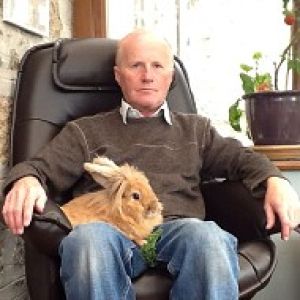Pride comes before a fall!
This is a new photo but I've linked the poem and explanation before, but every time I see a frog, I think of it.
The Puddock
A puddock sat by the lochan's brim,
An' he thocht there was never a puddock like him.
He sat on his hurdies, he waggled his legs,
An' cockit his heid as he glowered throu' the seggs.
The bigsy wee cratur' was feelin' that prood,
He gapit his mou' an' he croakit oot lood:
"Gin ye'd a' like tae see a richt puddock," quo' he,
"Ye'll never, I'll sweer, get a better nor me.
I've fem'lies an' wives an' a weel-plenished hame,
Wi' drink for my thrapple an' meat for my wame.
The lasses aye thocht me a fine strappin' chiel,
An' I ken I'm a rale bonny singer as weel.
I'm nae gaun tae blaw, but th' truth I maun tell-
I believe I'm the verra MacPuddock himsel'." ...
A heron was hungry an' needin' tae sup,
Sae he nabbit th' puddock and gollup't him up;
Syne runkled his feathers: "A peer thing," quo' he,
"But - puddocks is nae fat they eesed tae be."
John M. Caie
This poem concerns an amphibian that is reclining on the banks of a body of water. He is reflecting on his contributions to frog society. He considers himself to be an excellent provider for his spouses and offspring. Like Toad in The Wind in the Willows, he is a rather arrogant chap, thinking members of the opposite sex find him overwhelmingly attractive. The paddock thinks he also has the vocal dexterity of a Rod Stewart or even a Michael Buble!
However, a heron passes and eats the said frog. The bird is of the opinion that the paddocks of yesteryear had far better culinary attributes!

Comments
Sign in or get an account to comment.


